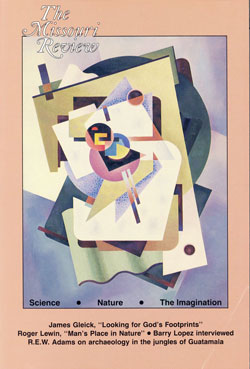Nonfiction | September 01, 1988
Medical Science in the Popular American Press: Beginnings
Terra Ziporyn
This essay is not currently available online.
Medicine has a uniquely important relationship with the public. More than a science, it has a practical side employing theory, yet distinct from it. This practical side always depends on the interaction of two parties: doctor and patient. Consequently, a patient’s ideas about medicine comprise part of the practice of medicine itself. But even before becoming a patient, a person must have some conception of medical theory (science) as well. Doctors, after all, do not operate on unwilling, inanimate objects: people go to doctors for help in certain types of problems because they believe that these problems and their solutions fall under the rubric of medicine. In this regard, the efficacy of medicine depends on the general public’s conception of it.
If you are a student, faculty member, or staff member at an institution whose library subscribes to Project Muse, you can read this piece and the full archives of the Missouri Review for free. Check this list to see if your library is a Project Muse subscriber.
Want to read more?
Subscribe TodaySEE THE ISSUE
SUGGESTED CONTENT

Editors' Prize Winner
Apr 16 2024
How to Love Animals
How To Love Animals We never planned to get goats. In fact, we’d told ourselves that goats were off limits. My wife, Anna, and I were living in the middle… read more

Nonfiction
Apr 16 2024
My Cape Disappointment
My Cape Disappointment It was named by a British fur trader who’d been looking for the mouth of the Columbia River. Dejected, the fur trader gave up the search, tacked… read more

Nonfiction
Apr 16 2024
The Birds
The Birds In the middle of watching Alfred Hitchcock’s The Birds with my family in our basement TV room, circa 1969, when I was nine, I was sent to the… read more

